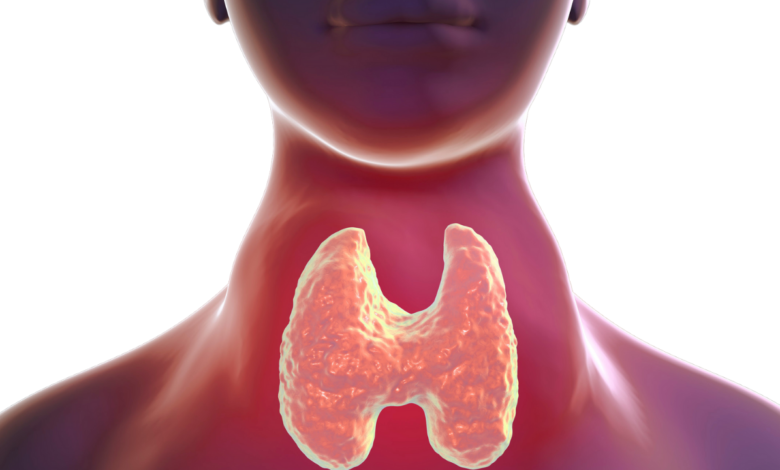Graves’ Disease: An autoimmune disorder affecting the thyroid gland.

What is the Graves’ Disease ?
Graves’ disease is an autoimmune disorder that causes the thyroid gland to produce too much thyroid hormone. This excess hormone can lead to a range of symptoms.
What are the symptom of Graves’ Disease?
Symptoms of Graves’ disease can vary depending on the severity of the condition, but they often include:
- Weight loss: Despite eating normally, individuals with Graves’ disease may lose weight.
- Rapid heartbeat: The heart rate may be faster than normal.
- Nervousness or anxiety: Individuals may feel anxious or jittery.
- Tremors: The hands may shake.
- Heat intolerance: Individuals may feel hot even in cool weather.
- Sweating: Individuals may sweat excessively.
- Fatigue: Despite getting enough sleep, individuals may feel tired.
- Bulging eyes: In some cases, the eyes may bulge outward.
- Goiter: A goiter, which is a swelling of the thyroid gland, may be visible in the neck.
Who can suffer from Graves’ Disease?
Graves’ disease can affect people of all ages, but it is most common in adults. Women are more likely to develop Graves’ disease than men.
What are the type of Graves’ Disease ?
There are several types of Graves’ disease, including:
- Toxic multinodular goiter: This type of Graves’ disease is characterized by multiple nodules in the thyroid gland.
- Toxic adenoma: This type of Graves’ disease is characterized by a single, benign tumor in the thyroid gland.
- Graves’ ophthalmopathy: This type of Graves’ disease is characterized by eye problems, such as bulging eyes and vision changes.
Which diagnostic are available for the Graves’ Disease ?
· Thyroid function tests: These tests measure the levels of thyroid hormones in the blood.
· Thyroid-stimulating hormone (TSH) test: This test measures the level of TSH, a hormone that stimulates the thyroid gland to produce thyroid hormone.
· Radioiodine scan: This test can help determine the size and shape of the thyroid gland.
· Ultrasound: This test can help detect any abnormalities in the thyroid gland
What are the treatment of the Graves’ Disease ?
The treatment for Graves’ disease depends on the severity of the condition and the patient’s symptoms. Common treatments include:
- Antithyroid medications: These medications can help to block the production of thyroid hormone.
- Radioiodine therapy: This therapy involves giving the patient a radioactive isotope of iodine, which destroys thyroid tissue.
- Surgery: In some cases, surgery may be necessary to remove the thyroid gland.
- Beta-blockers: These medications can help to manage symptoms such as rapid heartbeat and nervousness.
Which diet should I take ,if any ?
There is no specific diet recommended for people with Graves’ disease. However, it is important to eat a healthy, balanced diet.
Which speciality of the doctor will Graves’ Disease?
Graves’ disease is usually treated by an endocrinologist, who is a doctor who specializes in hormone disorders.
In Graves’ Disease completely curable ?
Graves’ disease is not a completely curable condition, but with proper treatment, it can be managed effectively. The goal of treatment is to control the symptoms and improve the quality of life for people with Graves’ disease.





